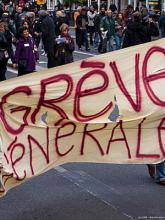Comment & Opinion: Education workers - just say no
I work in an FE college which has a very autocratic management which operates by bullying, intimidation and isolation. No unions are recognised and new members of staff are given the impression that they may not join a union. But... There is a rising level of dissatisfaction and discontent, connected to the idea that people may like to talk and do something about it (mainstream union membership is actually on the rise).
Recently a ‘request’ came down from senior management to a certain group of staff that they must consider themselves to be on call on demand. This was justified as coming under that lovely catch all contractual phrase “any other duty necessary to the fulfilment of your role.”





